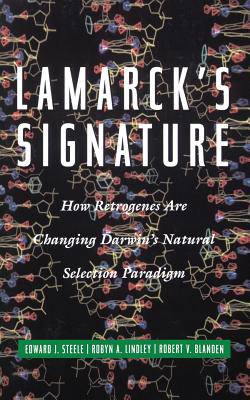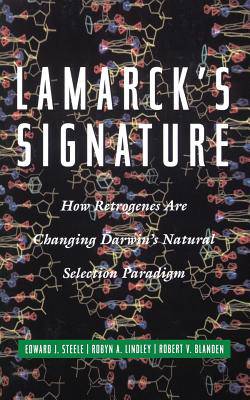
- Retrait gratuit dans votre magasin Club
- 7.000.000 titres dans notre catalogue
- Payer en toute sécurité
- Toujours un magasin près de chez vous
- Retrait gratuit dans votre magasin Club
- 7.000.0000 titres dans notre catalogue
- Payer en toute sécurité
- Toujours un magasin près de chez vous
32,95 €
+ 65 points
Description
This controversial book challenges the accepted theories on the genetic mechanism of evolution. The story these three biologists have to tell may very well upset the whole field of biology.The traditional view of evolution--which grew out of the work of Gregor Mendel and Charles Darwin and is strongly supported by present-day scientists like Richard Dawkins and Stephen Jay Gould--assumes we are at the mercy of our genes, which we inherit largely unchanged from our parents, except for rare random mutations which accumulated and lead to change over evolutionary time. Those genes are coded in the chromosomes of the sperm and egg cells of the parents, and so only changes to those two types of cell have any chance of being passed down to the parents'' offspring. Any changes, accidents, or surgery to the rest of the parent's bodies are not transmitted to the newborn.The theory of inheritance of acquired characteristics--if you build up your muscles your kids will be born with a propensity toward great strength--on the other hand, favored by Jean Lamarck in the nineteenth-century, was brought down by nineteenth-century science. But now, as this challenging and thrilling book shows, it looks as though, at least for certain structures in the body's immune system, Lamarck may have been right after all.Based on their own ground-breaking work over the past two decades, as well as that of other molecular biologists, Steele, Lindley, and Blanden argue that for one adaptive body system there is strong molecular genetic evidence that aspects of acquired immunities developed by parents in their own lifetime can be passed on to their offspring. Certain to stimulate lively debate, Lamarck's Signature gives new life and scientific credibility to the Lamarckian heresy--the notion of the inheritance of acquired characteristics.
Spécifications
Parties prenantes
- Auteur(s) :
- Editeur:
Contenu
- Nombre de pages :
- 320
- Langue:
- Anglais
Caractéristiques
- EAN:
- 9780738201719
- Date de parution :
- 01-12-99
- Format:
- Livre broché
- Format numérique:
- Trade paperback (VS)
- Dimensions :
- 136 mm x 210 mm
- Poids :
- 385 g

Les avis
Nous publions uniquement les avis qui respectent les conditions requises. Consultez nos conditions pour les avis.






